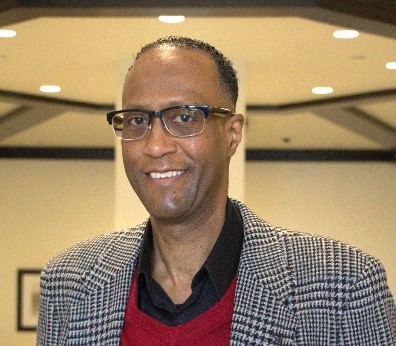

After the 2025 United States Elections1-3 and the longest government shutdown in history, 4,5 current tracking of American opinions is insightful. According to a recent Associated Press-NORC Center for Public Affairs Research6 poll, the following results warrant consideration:
- 69 % U.S. adults (about 7 in 10 persons) say things in the U.S. are heading in the “wrong direction.”
- 68% U.S. adults have a negative view of the state of the economy and view it as “poor.”
- Over half of respondents do not have confidence in the way Congress is being run, with 58% expressing “hardly any,” 43% expressing “only some,” and only 4% expressing “a great deal” of confidence.
This is not my attempt at political commentary on the current or past administrations of this country; its political parties or affiliations; or their policy agendas or priorities, whether they are supported or not. The polls reflect the sentiments of the current geopolitical climate and how it is affecting our views of the future.
Among the questions that come to mind when contemplating whether to view things with optimism or to see current events less favorably are those centering on our espoused values. Specifically, do we have shared or personal values that define who we are as a nation? Yes, I believe that we do. Despite all the polarization and rhetoric, I believe we have more things in common than we think. Social science posits that we share a smaller set of the same values that differ by degree, and that difference is based on the priority of self-versus others-orientation.7,8 I was recently reminded of a poem by the late American poet, author, and civil rights activist Maya Angelou at the United Nations Development Fund for Women’s Achievement Awards in 1996 where she recited her poem “The Human Family.” She aptly reminded us that “We are more alike, my friends, than we are unalike.” 9,10 She prefaced her comments with something else profound, that we are tied to a common fate, where we all win or we all lose. In times of uncertainty, we must not forget that the basis of our shared needs is similar. It should not reduce our decisions about each other and our interactions to a zero-sum game of winners and losers.
Why is this important? In the U.S., we have long asserted our expressed values to the world— values that inspire us to strive to be our best selves and move us toward outcomes that create opportunities for all to live their best lives in the communities where we reside, whether this effort is for neighbors living next door or whether the efforts link our local fate and common humanity to our neighbors in the global community. In public health, we have traditionally placed pride in our ability to ground our work in the health of communities and populations. We see this connectedness as essential to progress in any desired improvements for achieving health in all policies.
In addition to the foundational importance of shared values, the next question should ask, “Are we committed to collaboratively governing as a people?” It had been customary to expect active engagement of elected representatives with their local residents, driven by a desire to understand their needs and how to best represent them in governing bodies and as places that exist to serve all designated constituents within their jurisdiction (whether at the national, state, or local levels). Further, these officials collaborate with each other and other citizen participants to create solutions that benefit everyone for the common good. At the federal level, the U.S. Government Accountability Office has produced useful resources that can serve as roadmaps for effective governance and performance through leadership practices and strengthened interagency collaborations. 11,12
Collaborative governance can be a strong driver for transformation and change in addressing the persistent challenges we face. Johnson, Willis, and McGinnis at the National Policy Consensus Center explain what collaborative governance is and why it is so relevant right now. They assert, “In a collaborative governance approach, multiple government entities or a group of diverse stakeholders from communities, government, non-government organizations (NGOs), and the business sector collaborate on a public problem or opportunity, debate issues, pool ideas and resources, and produce an outcome. Collaborative governance occurs as a neutral arrangement where the views of all participants are given balanced consideration. Collaborative governance can produce better outcomes than one person or organization could produce alone—outcomes that are creative, well vetted, broadly supported, and better able to stand the test of time (p.3).”7
In closing, failure to protect and safeguard our shared values increases the likelihood of eroding our confidence in their virtue. Once gone, cooperation and collaboration are replaced with antagonism and rivalry. Our efforts to restore public trust and goodwill may prove more difficult than imagined, even perceived as insurmountable and of questionable utility. I believe that we should strive to pursue collaborative governance whenever possible because it closely aligns with the major tenets of our government and the principles that founded this nation. People are still willing to express their commitment to these ideals in peaceful forms of lawful participation. That is a good thing to me and gives me hope that others see the possibilities of our democracy, too.
Author Bio:

Karl J. McCleary, PhD, MPH
Dr. McCleary is Associate Dean of Strategy, Professor and Program Director for the Doctor of Public Health (DrPH) Program in Health Policy and Leadership, and Executive Director of the Center for Health Strategy and Innovation, at the School of Public Health. He also serves as a Faculty Scholar in the Loma Linda University Health Institute for Health Policy and Leadership. His research interests include health policy, transformation, and strategic change; innovation, systems thinking and redesign; and population health.
References
- Pereira, I. (2025, November 4). Election 2025 key takeaways: Democrats score historic big wins leading into midterms. abc News. Retrieved from https://abcnews.go.com/Politics/election-2025-key-takeaways-democrats-score-historic-big/story?id=127196303
- Desjardins, L, Landers, L., & McPhillips, T. (2025, November 5). WATCH: Key takeaways form the 2025 elections. NPR News. Retrieved from https://www.pbs.org/newshour/politics/watch-live-key-takeaways-from-the-2025-elections
- Ballotpedia News Staff (2025, November 5). A look at yesterday’s election results. Ballotpedia. Retrieved from https://news.ballotpedia.org/2025/11/05/a-look-at-yesterdays-election-results/
- Chowdhury, M., & Powell, T.B. (2025, November 5). Shutdown stalemate drags on as impasse becomes longest in US history. CNN Politics. Retrieved from https://www.cnn.com/politics/live-news/trump-government-shutdown-election-11-05-25
- CNN Politics (2025, November 12, Updated 6:24 PM EST). House will soon take a final vote on ending record-long government shutdown. Retrieved from https://www.cnn.com/politics/live-news/government-shutdown-house-end-flights-11-12-25?post-id=cmhwce1du00003b6080esuned
- Urenda, P. B., Esomonu, E., Lodhi, H., Sanders, L., & Yoo, H. (2025). Tracking approval and key issues: the latest AP-NORC poll. Associated Press. Retrieved from https://apnews.com/projects/polling-tracker/
- Rokeach, M. (1973). The nature of human values. New York: Free Press.
- Whetten, D.A., & Cameron, K.S. (2005). Developing Management Skills, Sixth Edition. Upper Saddle River, NJ: Pearson Prentice Hall.
- United Nations. (1996, October 29). Maya Angelou’s Wise Words. UN Radio Classics, United Nations Audiovisual Library (Audio). Retrieved from https://media.un.org/avlibrary/en/asset/c139/c1395
- United Nations (Production Date: March 21, 2024). Maya Angelou’s Wise Words. United Nations Audiovisual Library Archive (Video). Retrieved from https://media.un.org/avlibrary/en/asset/d318/d3188844
- Government Accountability Office (2012, September). Managing for Results: Key Considerations for Implementing Interagency Collaborative Mechanisms. GAO-12-1022. Retrieved from https://www.gao.gov/products/gao-12-1022
- Government Accountability Office (2023, May). Government Performance Management: Leading Practices to Enhance Collaboration and Address Crosscutting Challenges. GAO-23-105520. Retrieved from https://www.gao.gov/products/gao-23-105520.
- Johnson, J., Willis, W., & McGinnis, C. (2020). Building a Collaborative Governance Framework: A Five Step Process. National Policy Consensus Center Publications and Reports. 18. Retrieved from https://pdxscholar.library.pdx.edu/ncpp_pub/18
